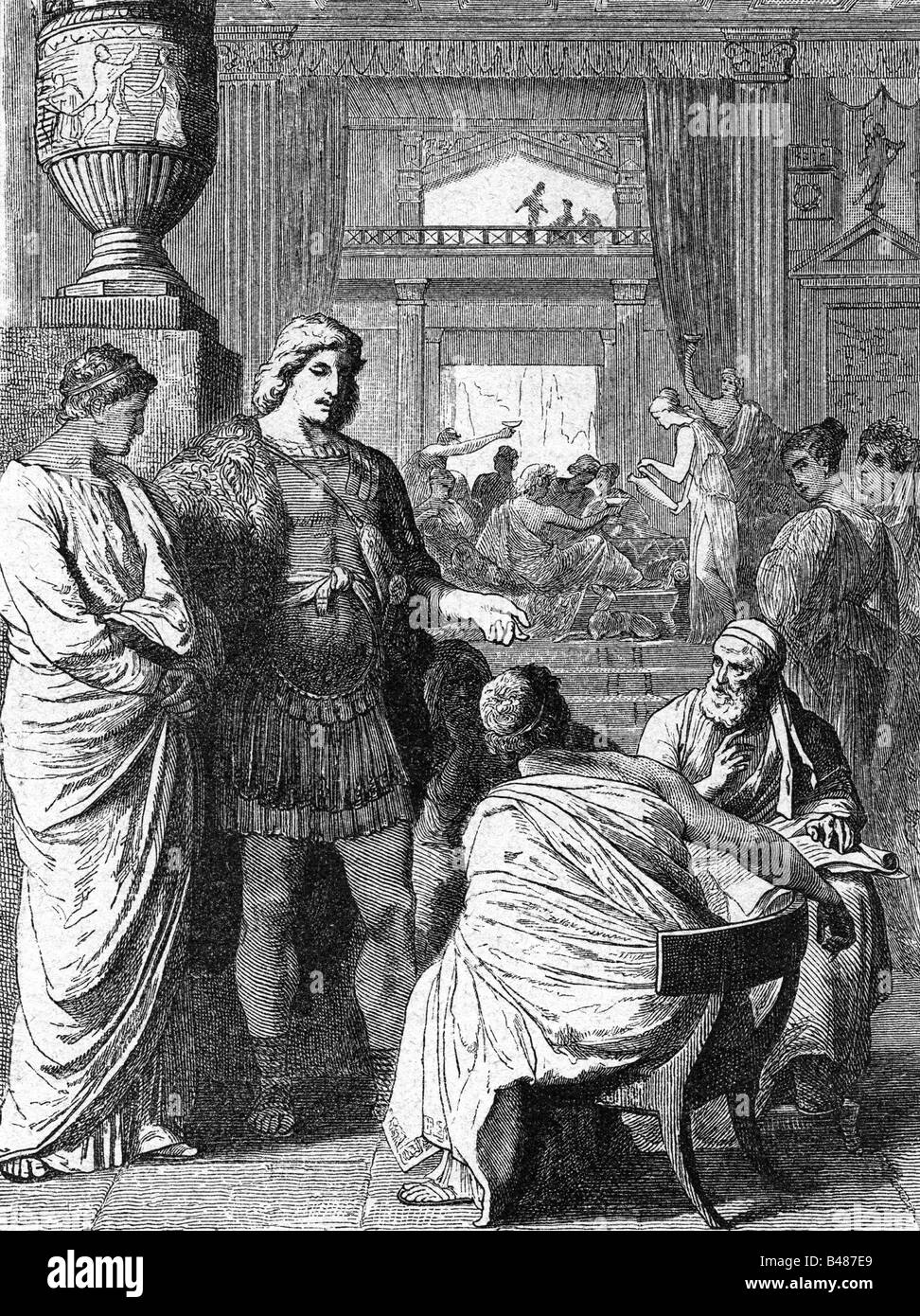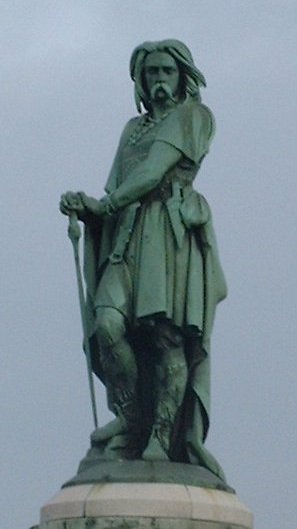

However, only a minute number of Romans died due to this storm. With his main objectives reached and with winter approaching Germanicus ordered his army back to their winter camps, with the fleet occasioning some damage by a storm in the North Sea. One final battle was fought at the Angivarian Wall west of modern Hanover, repeating the pattern of high German fatalities, forcing them to flee. Germanicus's superior tactics and better trained and equipped legions inflicted huge casualties on the German army, with only minor losses. Then he met Arminius' army in an engagement often called the Battle of the Weser River.

He forced a crossing of the Weser near modern Minden, suffering heavy losses. In spite of doubts on the part of his uncle, Emperor Tiberius, Germanicus managed to raise another huge army and invaded Germany again the next year, in 16. This victory, combined with the fact that winter was fast approaching, meant Germanicus's next step was to lead his army back to its winter quarters on the Rhine. Yet, whether his legacy marks the birth of the German nation is contestable and the use of his story must be approached with caution in an age where nationalistic heroes have been manipulated with devastating effects.Later, in 14 AD, the Roman general Germanicus, nephew of the Emperor Tiberius, led a huge 8-legion army (a legion was up to 5,000 men) into Germania against the coalition of tribes led by Arminius.Īfter visiting the site of the disastrous Battle of the Teutoburg Forest, where 15/20,000 Romans had been killed in 9 AD, and burying their remains, he launched a massive assault on the heartland of Arminius' tribe, the Cheruscans.Īrminius initially lured Germanicus' cavalry into a trap and inflicted minor casualties, until successful fighting by the Roman infantry caused the Germans to break and flee into the forest. Arminius can be remembered as a hero for his role in defeating the Romans in one of the greatest ambushes in the history of warfare. Fictions and children’s stories have used Hermann as a figure of inspiration, whilst Martin Luther and the Nazi Party have also glorified his ability to outwit and outpower a stronger force. Although he was raised as a Roman, he rebelled against his tutors over time and dealt them with one of the greatest failures in the history of the Roman Empire. three Roman legions including auxiliary troops and baggage under the command of Publius Quinctilius Varus (acting for the. Arminius, or Hermann (in German), has been glorified and used for certain political purposes throughout the modern era. Arminius was the son of the chief of the Germanic Cherusci tribe. Moreover, religious proliferation may too have been culled, which could explain why Germany is still divided by Catholic and Protestant differences. Arguably, European languages may not have developed as the use of Latin would have prevented the formation of modern European languages.

Several prominent scholars have argued that without his interference, the Roman Empire would have stretched far further to the north and east. Arminius, who was now twenty-seven years old, and had succeeded his father as chief of his tribe. The story of Arminius is compelling, yet the effects of his intervention are complicated. 2.117) made the yoke of Rome intolerable to the Germans. These developments inspired the Romans to return six years later in 15 AD, where the barbarian tribes were thoroughly destroyed and Arminius was eventually assassinated by his own people. The barbarian people tied the heads of the fallen Romans to trees, stole their coveted legionary symbols, and sent governor Varus’s head to Rome. Whilst the torrential rains and winds contributed to Arminius’s victory, Arminius certainly used his understanding of Roman weaknesses in warfare to fight effectively.Īfter three days of fighting, the Romans were defeated and Varus and his commanders committed suicide rather than admit defeat to Emperor Augustus. Varus’s legions were stretched, as well as outnumbered in territory that favoured Arminius’s barbarian fighters.

Arminius betrayed this trust and led Varus to believe that he needed assistance in suppressing an uprising deep into the Teutoburg forest. The Roman governor in the region was disillusioned and provocative, who carelessly entrusted Arminius as his source of knowledge in the province. Although raised in Rome, Arminius was a noble member of the Cherusci tribe, one of many barbarian and often warring tribes in the Germanic provinces. Arminius was raised and educated in Rome and served on campaigns with the Roman army. The Battle of the Teutoburg Forest in 9 AD was a turning point in history as Arminius led the Germanic barbarians to victory against the Romans. This edition will feature in Issue 38: Language and Culture


 0 kommentar(er)
0 kommentar(er)
